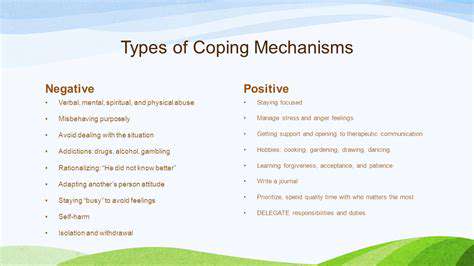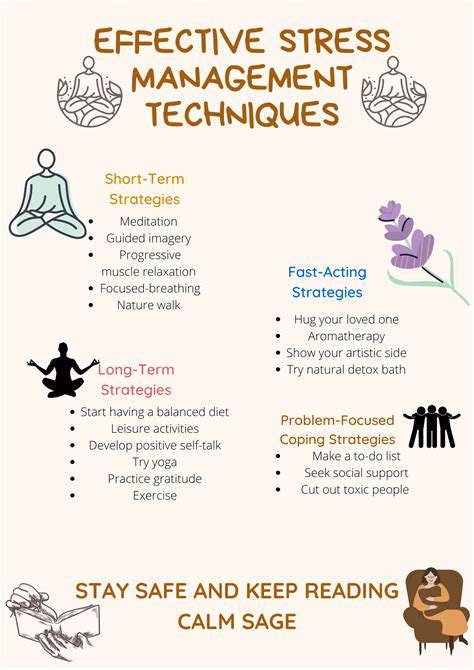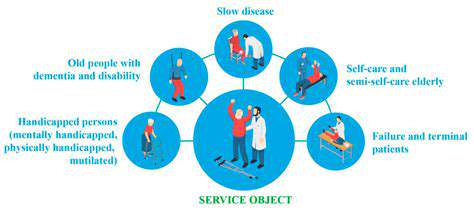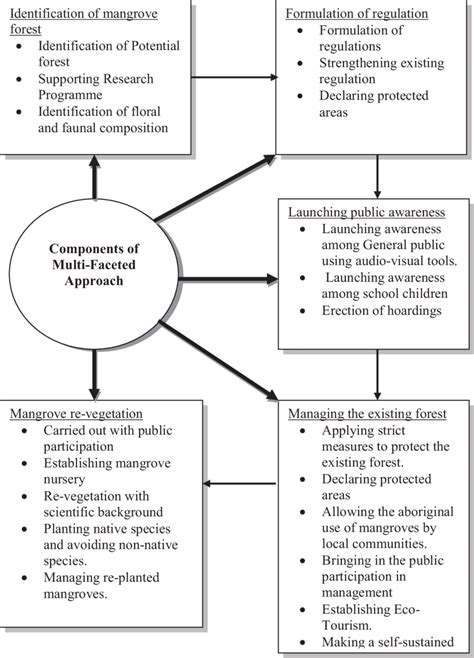Mental Health Initiatives for Climate Change Anxiety: Sustainable Coping
The Growing Impact of Climate Change on Mental Health
The Psychological Toll of Environmental Disasters
Climate change is no longer a distant threat; its devastating impacts are being felt globally, triggering a cascade of psychological consequences. Extreme weather events, like hurricanes, floods, and wildfires, displace communities, destroy homes, and disrupt livelihoods. These events often lead to acute stress reactions, anxiety, and post-traumatic stress disorder (PTSD) in affected populations. The loss of loved ones, cherished possessions, and familiar surroundings can leave deep emotional scars, impacting mental well-being for years to come.
The constant threat of future disasters and the increasing frequency of extreme weather events can also contribute to a sense of chronic anxiety and helplessness. Individuals may experience heightened worry about the safety of their families, their homes, and their communities. This persistent fear can significantly impact mental health, leading to depression, hopelessness, and a diminished quality of life.
The Impact of Resource Scarcity and Migration
Climate change is altering global patterns of resource availability. Droughts, floods, and desertification lead to water shortages, food insecurity, and economic hardship. These hardships can trigger conflict and displacement, forcing people to migrate in search of safer and more sustainable living conditions. This migration can lead to increased social stress, cultural clashes, and the disruption of existing social structures.
The displacement and loss of livelihoods associated with resource scarcity and migration create a significant burden on mental health. Individuals and families experiencing these hardships often face challenges integrating into new communities, navigating bureaucratic processes, and adapting to unfamiliar environments. These challenges can lead to feelings of isolation, hopelessness, and despair.
The Role of Societal Responses and Inequality
Societal responses to climate change can significantly influence mental health outcomes. Inequitable access to resources, information, and support services exacerbates existing social inequalities. Vulnerable populations, including low-income communities, marginalized groups, and those in developing countries, are disproportionately affected by the negative impacts of climate change. This can lead to increased rates of mental health issues and reduced access to necessary support.
Furthermore, the perceived inaction or inadequate response from governments and institutions can contribute to feelings of powerlessness and frustration. This can lead to increased levels of anxiety, depression, and social unrest. It is crucial to address the underlying social and economic inequalities that make some communities more vulnerable to the mental health impacts of climate change.
Addressing the Mental Health Crisis
Recognizing the growing mental health crisis linked to climate change is essential for effective intervention. Mental health services must be integrated into disaster preparedness and response plans. This includes providing access to trauma-informed care, psychological first aid, and long-term mental health support to affected communities. Moreover, community-based interventions focused on resilience building and social support can play a crucial role in fostering mental well-being.
Education and awareness campaigns are also critical in promoting understanding and empathy surrounding the mental health impacts of climate change. By fostering a culture of compassion and support, we can create healthier and more resilient communities that are better equipped to navigate the challenges posed by a changing climate.
Recognizing and Validating Climate Change Anxiety
Understanding the Roots of Climate Anxiety
Climate change anxiety isn't simply fear; it's a complex emotional response rooted in the perceived threat to our planet's future and the well-being of ourselves and future generations. This anxiety stems from the overwhelming and often seemingly insurmountable challenges presented by climate change, including rising sea levels, extreme weather events, and the potential for widespread ecological collapse. The sheer scale of the problem can be daunting, leading to feelings of helplessness and hopelessness.
Recognizing the specific triggers and contributing factors is crucial in addressing this anxiety. For many, witnessing the tangible effects of climate change, such as droughts, wildfires, or floods, directly impacts their emotional state. The uncertainty surrounding the future and the potential for irreversible damage further fuels this anxiety.
Identifying Symptoms of Climate Anxiety
Symptoms of climate anxiety can manifest in various ways, mirroring other forms of anxiety. Individuals might experience persistent worry, difficulty concentrating, sleep disturbances, or even physical symptoms like headaches or nausea. Recognizing these symptoms is the first step toward seeking support and implementing coping mechanisms. It's important to remember that these feelings are valid responses to a truly significant global challenge.
Beyond the typical anxiety symptoms, individuals might also experience feelings of sadness, anger, or helplessness related to the perceived inability to make a difference. These emotions are equally important to acknowledge and address.
The Impact on Mental Well-being
Climate change anxiety can significantly impact mental well-being, leading to increased stress, depression, and even post-traumatic stress disorder (PTSD) in some cases. The constant exposure to distressing information and images about climate change can be overwhelming, leading to chronic stress and a sense of powerlessness.
The emotional toll of climate anxiety can also affect relationships and daily functioning, making it essential to address this issue proactively and seek support when needed.
The Role of Media and Information Consumption
The constant barrage of information about climate change, often presented in alarming terms, can contribute to the development of climate anxiety. Individuals need to be mindful of their consumption of media, particularly news, and seek out sources that offer both accurate information and actionable steps to address climate concerns.
Coping Mechanisms and Strategies
Developing coping mechanisms is crucial for managing climate anxiety. These strategies can include engaging in activities that foster a sense of control and empowerment, such as supporting environmental initiatives, participating in community discussions, or engaging in sustainable practices.
Furthermore, connecting with others who share similar concerns can provide a sense of community and support, reducing feelings of isolation and alienation. Seeking professional help from therapists specializing in climate anxiety is also an important option.
Building Resilience and Hope
Building resilience in the face of climate change anxiety involves cultivating a sense of hope and agency. Focusing on positive narratives, celebrating individual and collective achievements in environmental efforts, and supporting organizations working to mitigate climate change are crucial steps.
Learning about the various actions individuals can take to reduce their environmental footprint can also instill a sense of purpose and empowerment. By focusing on positive action, we can collectively build a more sustainable future and reduce the sense of helplessness associated with climate anxiety.
Seeking Professional Help and Support
If climate anxiety is significantly impacting your daily life, seeking professional help is crucial. Mental health professionals can provide support and strategies to manage this anxiety, including cognitive-behavioral therapy (CBT) techniques and coping mechanisms. They can also help individuals identify and address the underlying causes of their anxiety and develop strategies for managing stress.
Support groups focused on climate change anxiety can offer a sense of community and shared experience, allowing individuals to connect with others facing similar challenges and learn from each other’s experiences and coping strategies.
Cultivating Sustainable Coping Mechanisms

Understanding the Foundation of Coping Mechanisms
Coping mechanisms are the strategies we employ to manage stress, challenges, and difficult emotions. They are integral to our well-being and ability to navigate life's inevitable ups and downs. Understanding the types of coping mechanisms we utilize, both healthy and unhealthy, is crucial for personal growth and development. Recognizing the origins and triggers of these mechanisms can offer valuable insights into our emotional responses.
Developing Healthy Coping Strategies
Proactive development of healthy coping mechanisms is essential. This often involves identifying triggers and stressors in our lives and implementing strategies to manage them effectively. Seeking support from trusted individuals, such as friends, family, or professionals, is a vital component of this process. Practicing mindfulness, engaging in physical activity, and maintaining a healthy lifestyle are all valuable tools in developing resilience.
The Role of Mindfulness in Coping
Mindfulness practices, such as meditation and deep breathing exercises, can significantly enhance our ability to cope with stress. These practices promote awareness of the present moment, allowing us to observe our thoughts and feelings without judgment. By cultivating a sense of presence, we can reduce reactivity to stressors and develop a greater sense of calm.
Addressing Unhealthy Coping Mechanisms
Sometimes, we develop coping mechanisms that are not conducive to long-term well-being. These unhealthy coping mechanisms can range from substance abuse to avoidance behaviors. Identifying and addressing these patterns is a crucial step towards creating positive change. Seeking professional help from therapists or counselors can provide the necessary guidance and support to overcome these challenges.
The Importance of Emotional Regulation
Emotional regulation is a critical component of effective coping. It involves recognizing, understanding, and managing our emotions in a healthy way. Learning techniques for managing difficult emotions, like anger or sadness, is essential for preventing negative spirals and fostering emotional well-being. Developing healthy emotional regulation skills can significantly improve our relationships and overall quality of life.
Cultivating Support Systems for Long-Term Well-being
Building strong support systems is paramount for sustainable coping. Surrounding ourselves with supportive individuals who understand and accept us is vital for navigating life's challenges. These connections provide a sense of belonging and encouragement, allowing us to feel heard and understood when facing difficult situations. Maintaining these relationships and fostering open communication are crucial for long-term well-being.
Read more about Mental Health Initiatives for Climate Change Anxiety: Sustainable Coping
Hot Recommendations
- AI Driven Personalized Sleep Training for Chronic Insomnia
- AI Driven Personalization for Sustainable Stress Management
- Your Personalized Guide to Overcoming Limiting Beliefs
- Understanding Gender Dysphoria and Mental Health Support
- The Power of Advocacy: Mental Health Initiatives Reshaping Society
- Building a Personalized Self Compassion Practice for Self Worth
- The Ethics of AI in Mental Wellness: What You Need to Know
- AI Driven Insights into Your Unique Stress Triggers for Personalized Management
- Beyond Awareness: Actionable Mental Health Initiatives for Lasting Impact
- Creating a Personalized Sleep Hygiene Plan for Shift Workers











